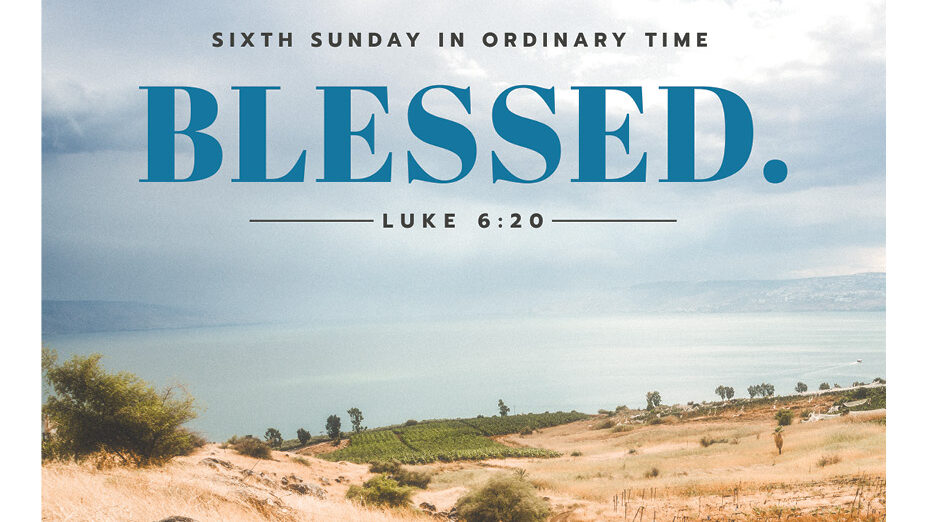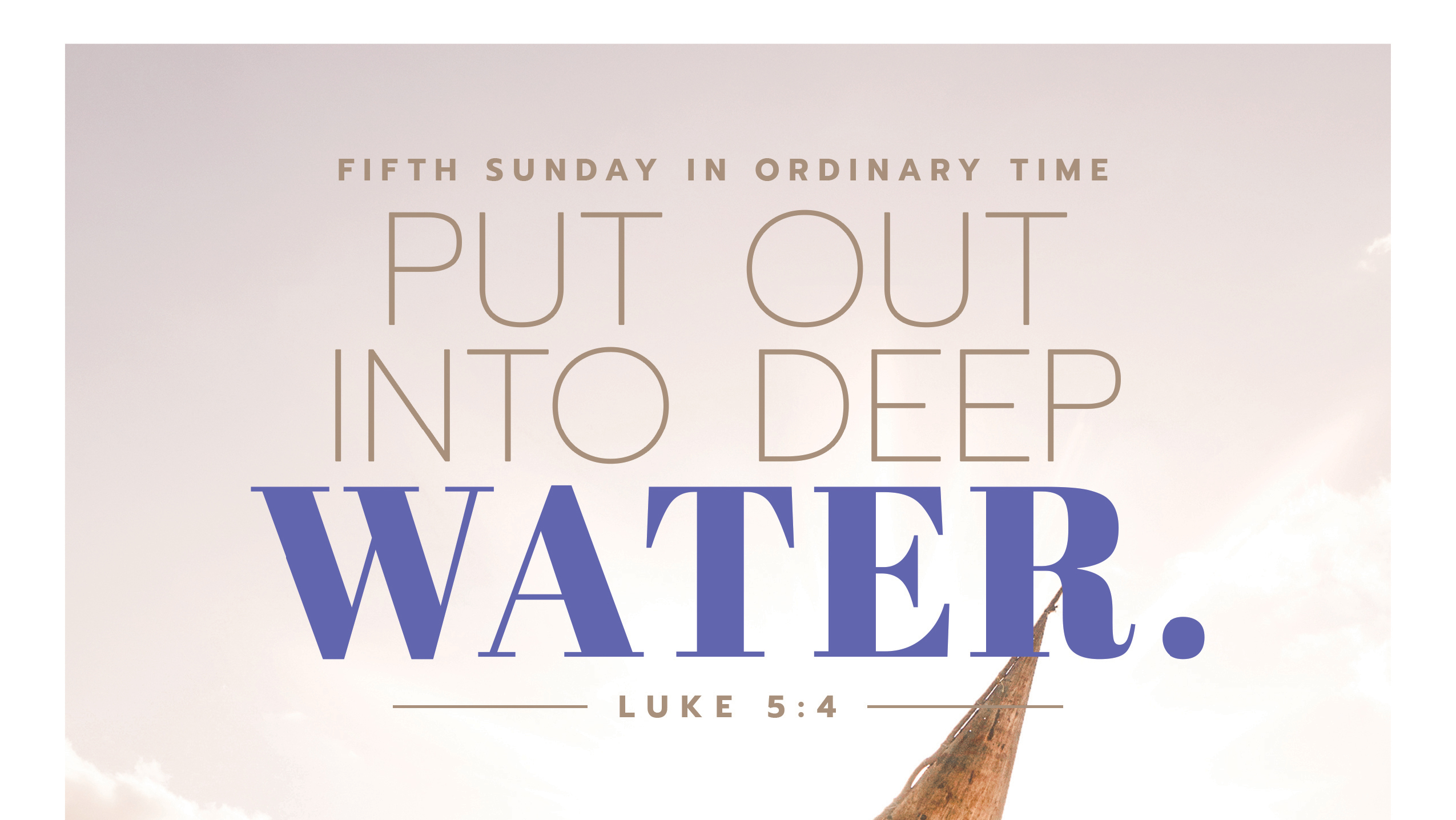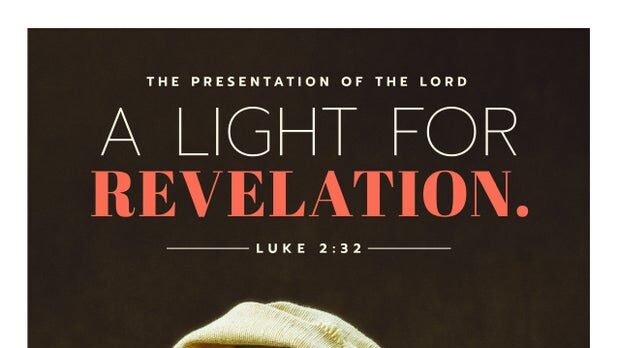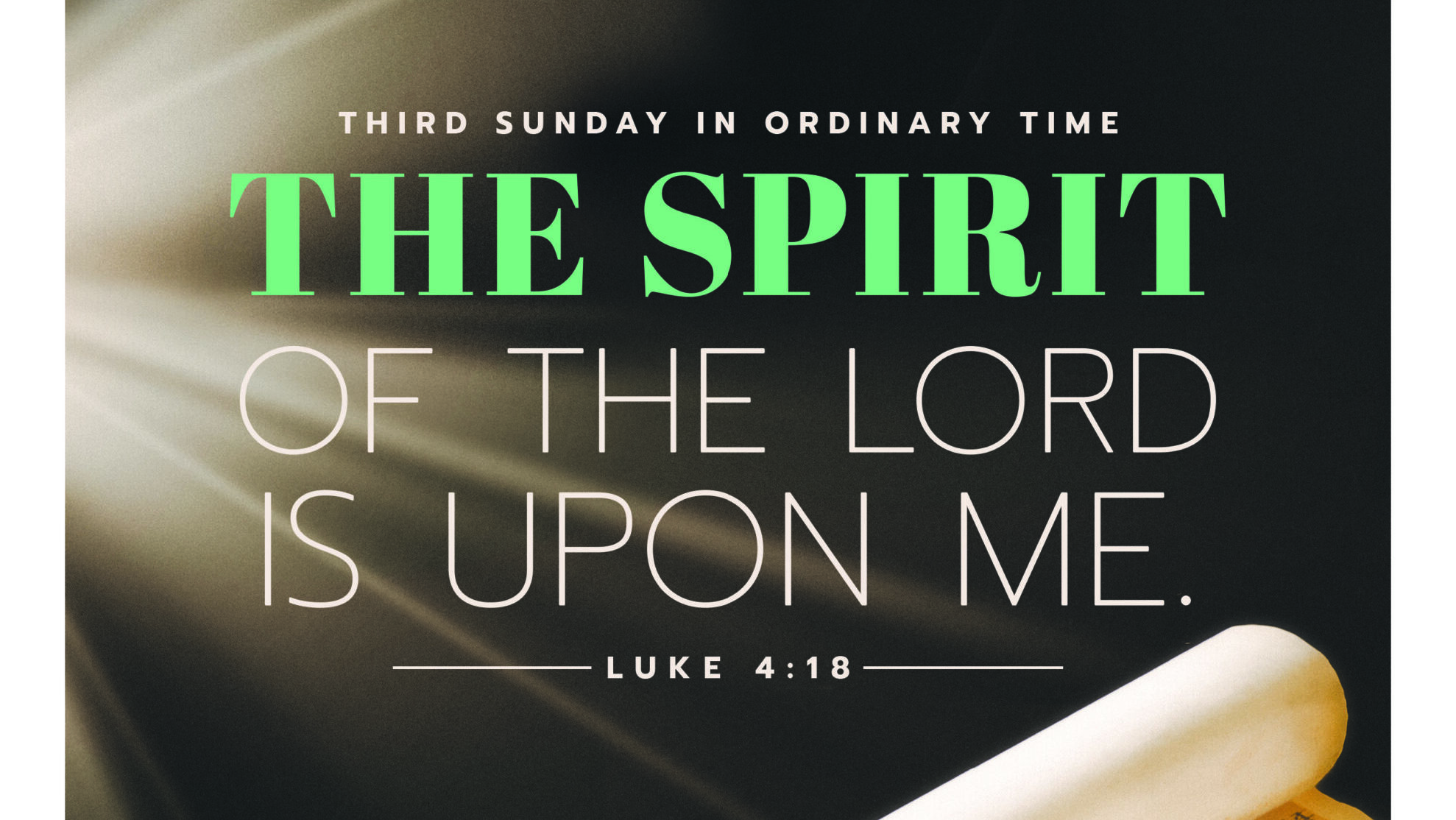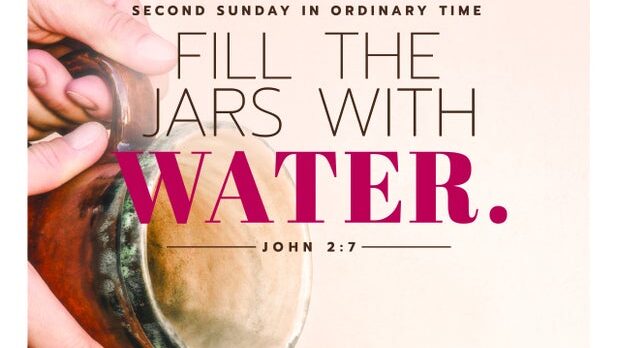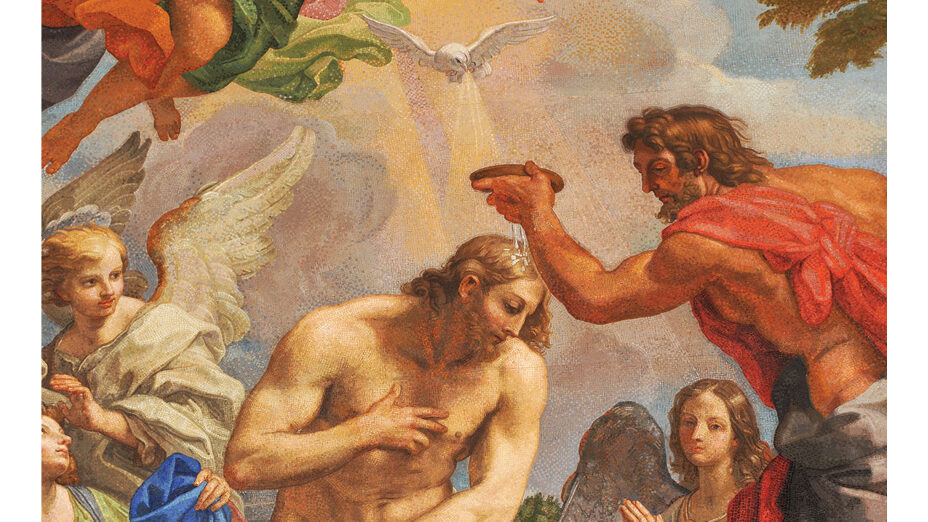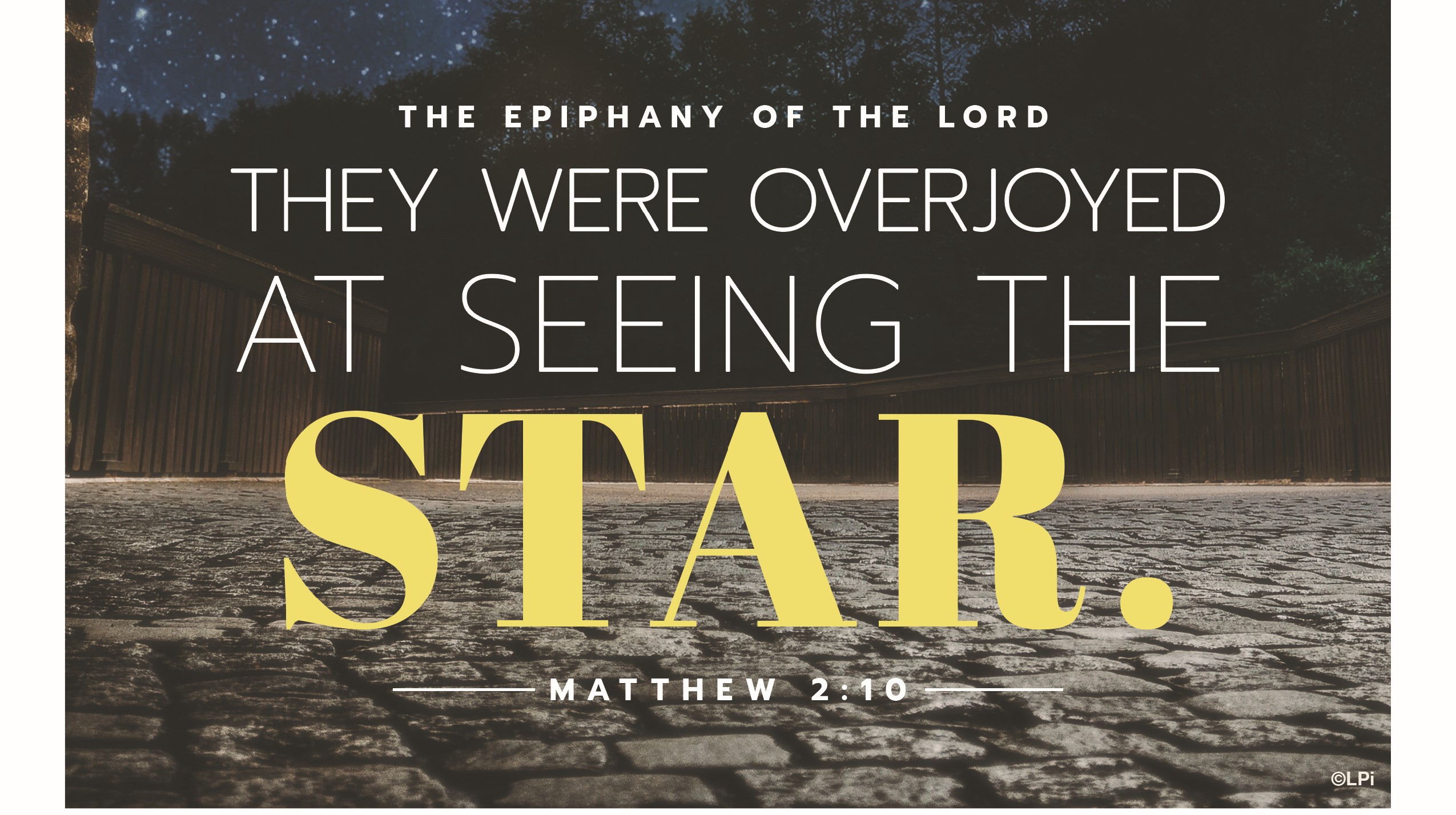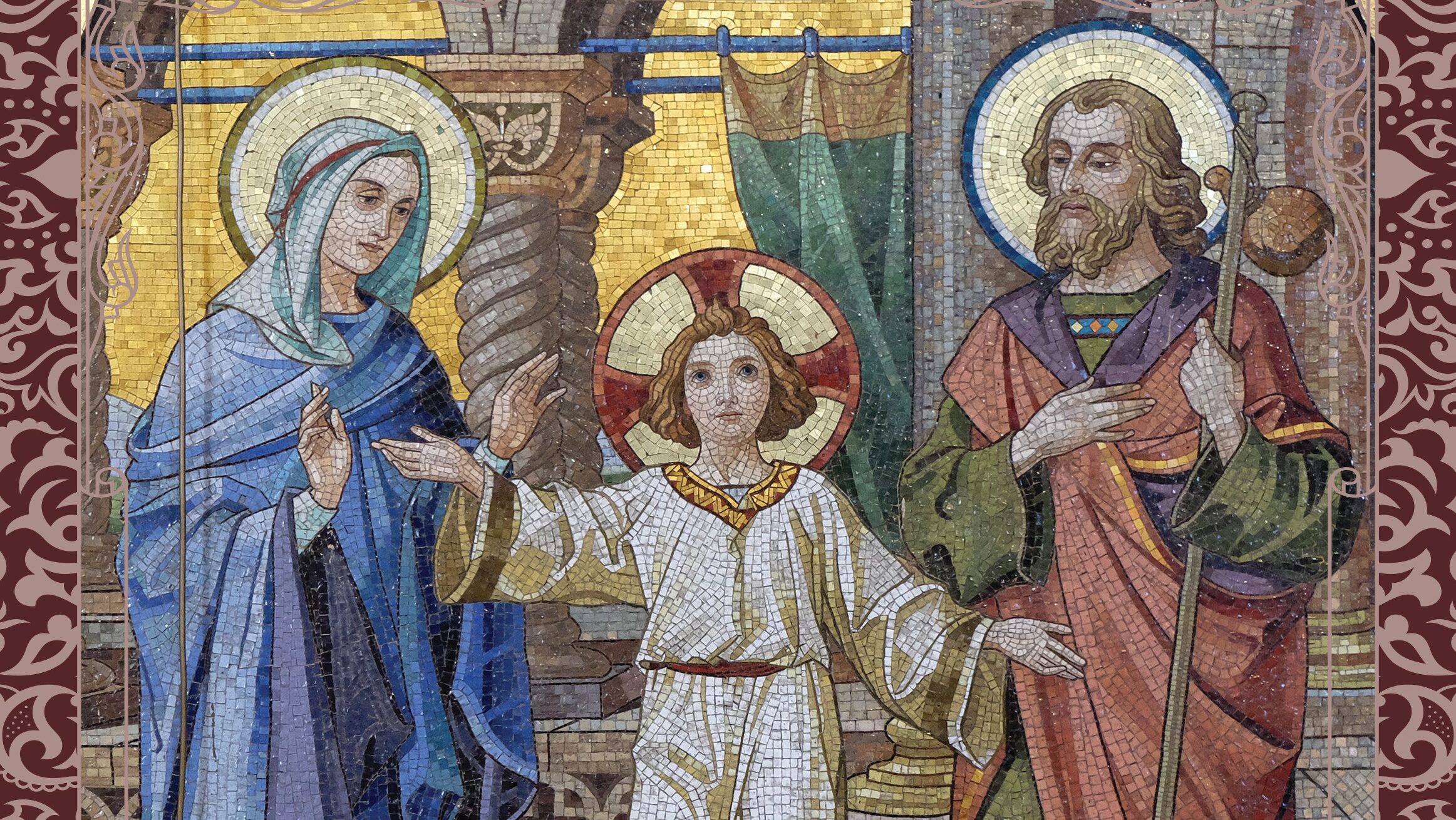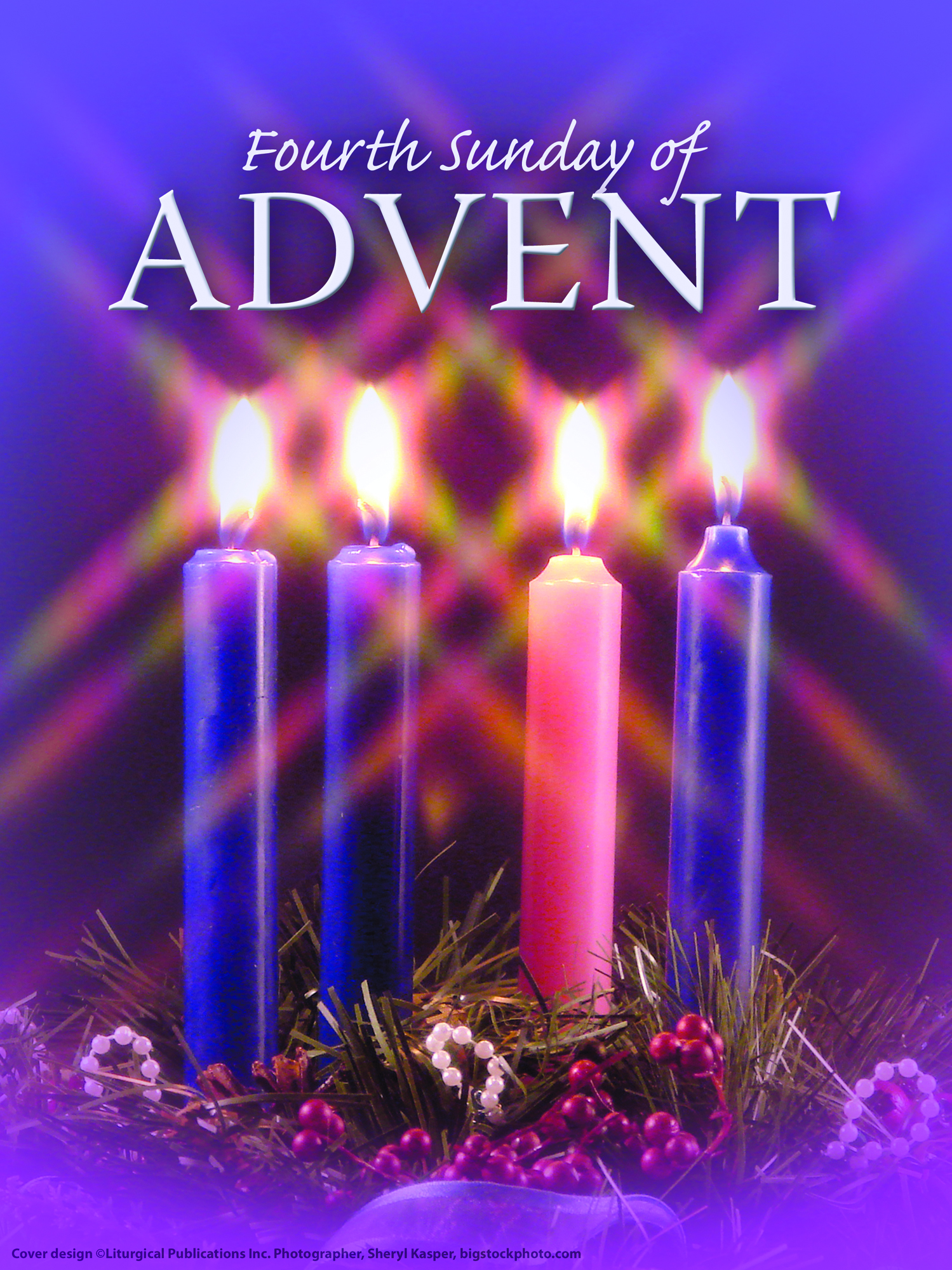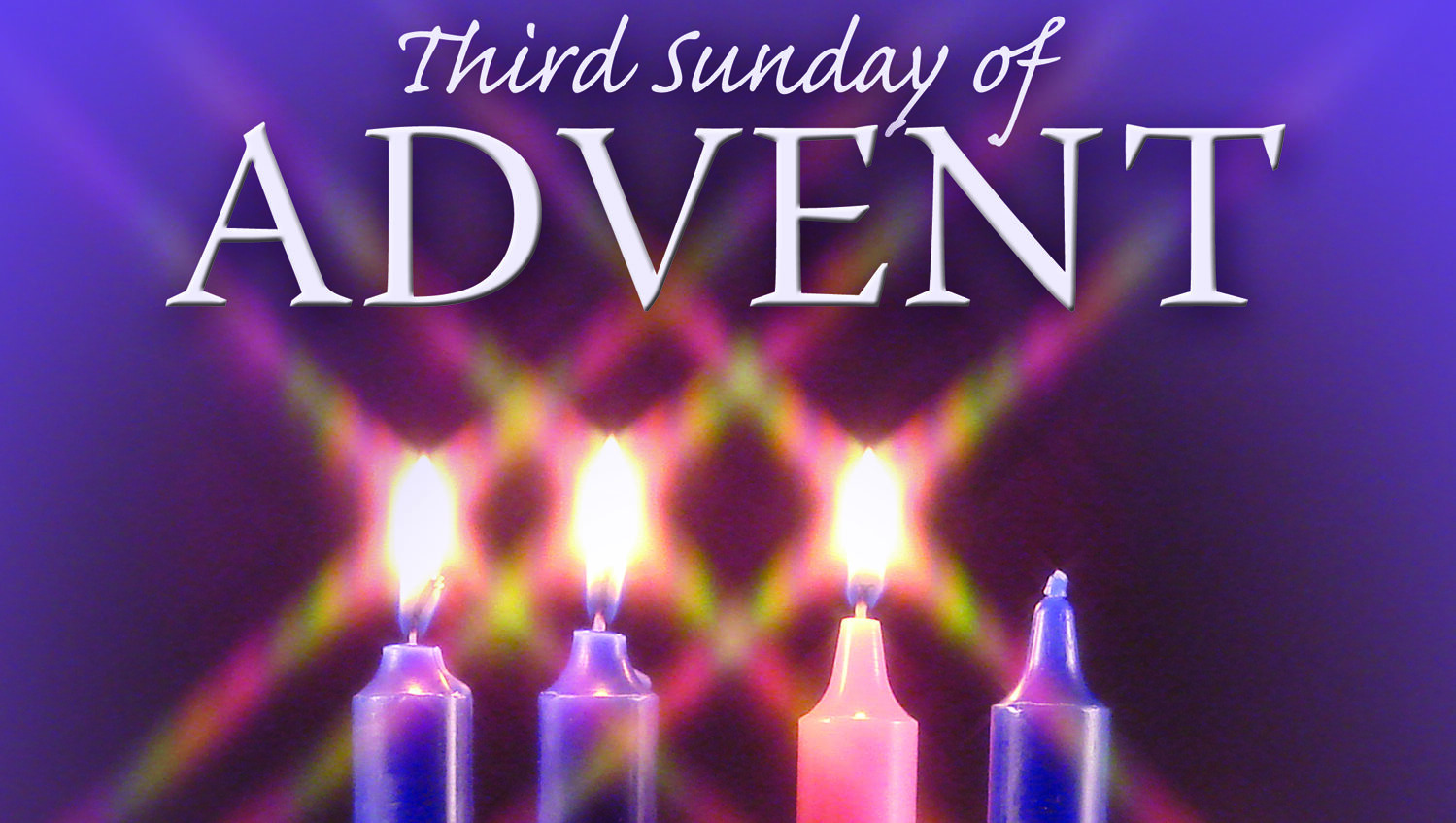Feb. 16, 2025
Dear Parishioners,
When the gospel talks about visible world, it also speaks about spiritual world. Jesus heals a lot of sicknesses, but the real healing he wants for us is the healing in our spirit, our soul. So, in the gospel today we hear about Jesus curing a leper, we, of course, rejoice with him and for him. But we must ask ourselves, “What spiritual illness of mine needs the healing touch of Jesus?”
Once upon a time, there was a holy man with a magic mirror. Whoever sincere and honest can come standing before the mirror, and it will show the real wellbeing of that person. But only the sage and that person can see what shows in the mirror, and no one else does. Though curious, many folks are scared by the idea of seeing their true inner form. Yet many did come and stood before the magic mirror.
A soldier, who had lost an arm and a leg in battle, saw a perfect body in the mirror. He asked the holy man, “Why?” The sage said, “Because you continue to work and serve as well as any able person.”
An elderly woman in a wheelchair saw a robust person preaching to a crowd inspiring awe from them. She shook her head in disbelief, “What is going on?” The sage smiled, “Your long suffering and earnest prayers from the wheelchair speak as eloquently and powerfully as the best preachers.”
A businessman came and couldn’t believe his eyes. He saw no human shape but many arms flailing about like tentacles. The sage said, “You grab and grope everywhere for profit and gain.”
A doctor came and saw her body full of sores and pus and blotches. She ran away without talking to the sage. She knew she had been more concerned about increasing her bank accounts than about treating patients.
A young man came, and the mirror showed his brain and his stomach burning in terrible fires. He dropped his head; though his wife and children hadn’t known, drugs and alcohol were ravaging his body.
A woman came and saw fire oozing from her mouth like lava coming from the mouth of a volcano, her tongue long and black like a serpent’s. She knew she had been gossiping badly about many people.
A priest came and saw only the back of his body and without any leg. He asked the holy man, “Why?” The sage looked sad, “You only follow your own pursuit, ignoring what Jesus teaches and the Church informs. You have no standing before God.”
A scientist came and saw a brilliant light shining from his head but a black hole at his heart. The sage explained, “That is because you worship science without a conscience. You use science to deny God. But you will fail.” …
Now, it is your turn, and mine, to stand still before the magic mirror.
What do you see? What do you want to do about what you see?
In 1981 Peter Cropper, the British violinist, was invited to Finland to play a special concert. As a personal favor to Peter, the Royal Academy of Music lent him their priceless 285-year-old Stradivarius for use in the concert.
This rare instrument takes its name from the Italian violin maker, Antonio Stradivari. It was made of 80 pieces of special wood and covered with 30 coats of special varnish. Its beautiful sound has never been duplicated.
When Cropper got to Finland, an incredible nightmare took place. Going on stage, he tripped and fell. The violin broke into several pieces. He flew back to London, totally shocked. A master craftsman named Charles Beare agreed to try to repair the violin. He worked endless hours on it.
Finally, he got it back together again. Then came the dreaded moment of truth. What would the violin sound like? Beare handed the violin to Cropper. His heart was pounding inside, as he picked up the bow and began to play. Those present could hardly believe their ears. Not only was the violin’s sound excellent, but it seemed better than before. In the months ahead, Cropper took the violin on a worldwide tour. Night after night, the violin everyone thought was ruined forever drew standing ovations from concert audiences.
Whatever you see in the magic mirror – a leper, a broken violin, or anything else – Jesus’s healing touch is waiting for you and me. The same touch that created us in the first place will restore in us the image and likeness of God.
Jesus is waiting.
In the Most Holy Trinity and in solidarity with you all,
Fr. Duc
Ông Bà Anh Chị Em quý mến,
Khi Phúc Âm nói về thế giới hữu hình, nó cũng đề cập đến thế giới tâm linh. Chúa Giêsu chữa lành rất nhiều bệnh tật, nhưng sự chữa lành thực sự mà Người muốn làm cho chúng ta là sự chữa lành tâm linh. Vì vậy, trong Phúc Âm hôm nay, chúng ta nghe về việc Chúa Giêsu chữa lành một người phong cùi, tất nhiên chúng ta vui mừng với và cho anh ta. Nhưng chúng ta phải tự hỏi, “Căn bệnh tâm linh nào của tôi cần sự chữa lành từ Chúa Giêsu?”
Ngày xửa ngày xưa, có một người hiền triết thánh nhân có một chiếc gương huyền bí. Bất kỳ ai chân thành và tin tưởng đều có thể đến đứng trước tấm gương, và nó sẽ trình bày cho thấy con người trung thực của họ. Nhưng chỉ có nhà hiền triết và người đó mới có thể nhìn thấy những gì hiển thị trong gương, và không ai khác có thể. Mặc dù tò mò, nhiều người lo sợ hiện tượng nhìn thấy hình dạng bên trong thực sự của họ. Tuy nhiên, cũng có nhiều người đã đến và đứng trước chiếc gương kỳ diệu.
Một người lính, đã cụt một cánh tay và một chân trong trận chiến, lại nhìn thấy một cơ thể hoàn hảo trong gương. Anh ta hỏi vị thánh nhân, “Tại sao lại như vậy?” Nhà hiền triết nói, “Bởi vì anh vẫn tiếp tục làm việc và phục vụ tốt như bất kỳ người có đầy đủ năng lực.”
Một bà lão ngồi xe lăn nhìn thấy một người khỏe mạnh đang thuyết giảng trước đám đông khiến họ vô cùng kính sợ. Bà lắc đầu không tin, “Chuyện gì đang xảy ra vậy?” Nhà hiền triết mỉm cười, “Những lời cầu nguyện tha thiết và đau khổ của bà từ chiếc xe lăn có sức thuyết phục và hùng hồn như những nhà thuyết giáo giỏi nhất.”
Một doanh nhân đến và không tin vào mắt mình. Ông không thấy hình người nào mà chỉ thấy nhiều cánh tay quơ quài như những cái vòi bạch tuộc. Nhà hiền triết nói, “Ông chộp giật và lục lọi khắp nơi để kiếm lợi.”
Một bác sĩ đến và nhìn thấy cơ thể bà đầy vết loét, mủ và vết thâm. Bà bỏ chạy mà không nói chuyện với nhà hiền triết. Bà biết mình đã lo lắng nhiều về việc tăng tài khoản ngân hàng của mình hơn là điều trị cho bệnh nhân.
Một thanh niên đến, và tấm gương cho thấy não và dạ dày của anh ta đang cháy trong ngọn lửa khủng khiếp. Anh ta cúi đầu; mặc dù vợ và các con anh ta không biết, nhưng ma túy và rượu nồng đang tàn phá cơ thể anh ta.
Một người phụ nữ đến và nhìn thấy lửa trào ra từ miệng bà như dung nham phun ra từ miệng núi lửa, lưỡi bà dài và đen như lưỡi rắn. Cô biết mình đã nói xấu nhiều người.
Một vị linh mục đến và chỉ thấy phần lưng của ông và không có chân. Ông hỏi vị thánh hiền, “Tại sao?” Nhà hiền triết trông buồn bã, “Ông chỉ theo đuổi mục đích của riêng mình, bỏ qua những gì Chúa Giêsu dạy và Giáo Hội hướng dẫn. Ông không có chỗ đứng trước mặt Thiên Chúa.”
Một nhà khoa học đến và thấy một luồng sáng rực rỡ chiếu từ đầu ông nhưng lại có một lỗ đen ở tim. Nhà hiền triết giải thích, “Đó là vì ông tôn thờ khoa học mà không có lương tâm. Ông dùng khoa học để phủ nhận Thiên Chúa. Nhưng ông sẽ thất bại.” …
Bây giờ, đến lượt bạn, và tôi, đứng yên trước tấm gương huyền bí.
Bạn nhìn thấy gì? Bạn muốn làm gì với những gì bạn nhìn thấy?
Năm 1981, Peter Cropper, nghệ sĩ vĩ cầm người Anh, được mời đến Phần Lan để chơi một buổi hòa nhạc đặc biệt. Để tỏ lòng biết ơn cá nhân với Peter, Học viện Âm nhạc Hoàng gia đã cho ông mượn cây đàn Stradivarius vô giá 285 năm tuổi của họ để sử dụng trong buổi hòa nhạc.
Nhạc cụ quý hiếm này lấy tên từ nghệ nhân làm đàn vĩ cầm người Ý, Antonio Stradivari. Nó được làm từ 80 miếng gỗ độc đáo và phủ 30 lớp véc ni đặc biệt. Âm thanh tuyệt vời của nó chưa bao giờ được sao chép.
Khi Cropper đến Phần Lan, một cơn ác mộng đáng kinh ngạc đã xảy ra. Khi lên sân khấu, ông ta vấp ngã. Cây vĩ cầm vỡ ra nhiều mảnh. Ông vội bay trở lại London, hoàn toàn bị sốc. Một nghệ nhân bậc thầy tên là Charles Beare đã đồng ý cố gắng sửa chữa cây vĩ cầm. Ông đã làm việc không ngừng nghỉ trong một thời gian dài.
Cuối cùng, ông đã lắp ráp lại được nó. Rồi đến khoảnh khắc sự thật đáng sợ. Cây vĩ cầm sẽ rung lên âm thanh nào? Beare đưa cây vĩ cầm cho Cropper. Tim ông ta đập thình khi cầm cây vĩ lên và bắt đầu chơi. Những người có mặt ở đó khó có thể tin vào tai mình. Không chỉ âm thanh của cây vĩ cầm tuyệt vời, mà nó còn có vẻ hay hơn trước. Trong những tháng tiếp theo, Cropper đã mang cây vĩ cầm đi lưu diễn khắp thế giới. Đêm này qua đêm khác, cây vĩ cầm mà mọi người nghĩ rằng đã hư hỏng mãi mãi đã nhận được sự hoan nghênh nhiệt liệt từ khán giả của các buổi hòa nhạc.
Bất kể bạn nhìn thấy gì trong tấm gương kỳ diệu – một người phong hủi, một cây vĩ cầm bị hỏng, hay bất kỳ thứ gì khác – thì sự chạm tới chữa lành của Chúa Giêsu đang chờ đợi bạn và tôi. Chính ngón tay đã tạo ra chúng ta ngay từ đầu sẽ tái tạo chúng ta trở lại hình ảnh giống như Chúa.
Chúa Giêsu đang chờ đợi.
Hiệp thông trong Chúa Ba Ngôi và hiệp nhất với ông bà anh chị em,
Lm Tôma Vũ Minh Đức, SJ

